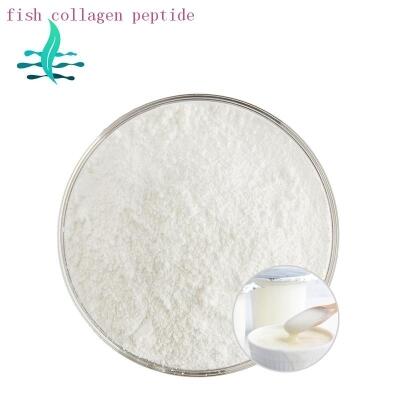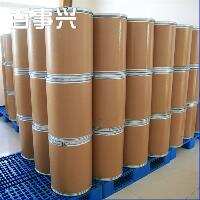The difficulty of oil price reform.
-
Last Update: 2020-07-30
-
Source: Internet
-
Author: User
Search more information of high quality chemicals, good prices and reliable suppliers, visit
www.echemi.com
;. Since October 25th, international oil prices have easily crossed the $90-a-barrel mark, reaching $93 at one point, and by early November, they had peaked at $96 a barrel.With international oil prices soaring, the National Development and Reform Commission announced that from November 1st, the price of refined oil: gasoline, diesel oil per ton rose by 500 yuan. The adjusted wholesale price of petrol rose from $5480 to $5,980 per ton and diesel to $5,520. Add in the 8% zero difference allowed by the state, the price per ton of terminal gasoline is 6460 yuan, diesel is 5960 yuan. After apportionment, the average price per litre of petrol will rise by between 4 and 5 cents.price-distorting oil shortagehowever, in the face of the still high CPI index, we look forward to a long time of refined oil pricing reform will be slowed again.Although the CPI data has not yet been released before the draft, but in mid-October, the National Bureau of Statistics released the first three quarters of the economic health shows: the economic performance of the indicators are still high, compared with the previous two quarters, the third quarter of the price index, although there is a decline, but the room for decline is not large.and in the National Bureau of Statistics released economic data soon, Guangzhou, Shanghai, Zhejiang and other places have appeared in the "oil shortage", in Guangzhou, many gas stations also have no oil to add, even sinopec, PetroChina gas stations, but also limited refueling.at this time, Guangzhou's oil price has been the National Development and Reform Commission on the basis of the original approval of the 210 yuan per ton, and this price as early as August 1 began to implement.. . . NextPage. Not only Guangzhou, the National Federation of Industry and Commerce Oil Chamber of Commerce obtained data show that before the National Development and Reform Commission, Guangzhou, Shanghai, Zhejiang, Beijing, Hubei, Chongqing and other places of wholesale oil prices have been on the original basis of the rise of 50 yuan to 250 yuan per ton. The area of price increase is basically all over the country.and before July, several major domestic oil companies have twice written to the National Development and Reform Commission, asked for a price increase on refined oil. It is understood that in the first submission to the NDRC's oil price increase program proposed that gasoline rose 200 yuan / ton, diesel 150 yuan / ton, but the application was ultimately not approved by the NDRC. In the second price increase scheme, its application for a price increase was slightly larger than the previous increase, but it was also not approved.and in July several major oil companies to the National Development and Reform Commission to apply for price increases at the same time, Beijing, Shanghai, Guangzhou and other places have also appeared similar to a few days ago, "oil shortage" incident.customs data may illustrate the problem, china's exports of refined oil in the first half of this year increased by 27.6% year-on-year, while imports of refined oil fell 1 percent from a year earlier. This may mean that there is not really a shortage of oil in the domestic reserves, but a shortage of domestic supply in the face of domestic and international price distortions. And domestic oil companies are more willing to export refined oil rather than domestic sales, if simply from the state-owned assets to preserve value-added, a true reflection of the value of China's energy products, enterprises are willing to export, is also justified.", "the rise in oil prices will correspondingly promote CPI, CPI high when the application for price adjustment will certainly not be able to pass, but in the third quarter, if the CPI index falls back, this is the two major oil majors, restart the price of refined oil is a more appropriate time. "One energy industry insider said.earnings of listed companies and group lossessoaring international oil prices and overwhelming domestic refiners. This is the National Development and Reform Commission," the head of the price department gave the reasons for the rise in oil prices. According to the person in charge, for every ton of refined oil produced and supplied, the enterprise lost about 1000 yuan. And the node of all the contradictions lies in the current oil price operation mechanism. Zhu Hongren, deputy director of the Economic Operations Bureau of the National Development and Reform Commission of the, said bluntly: "The main reason for the losses in China's oil refining industry is that the price of domestic oil and international crude oil prices have been hung upside down for a long time." "the current domestic refined oil price mechanism was formed in 1998 when the two major oil groups were restructured. In 2001, the former State Planning Commission revised the price mechanism of refined oil products. Since then, the price of crude oil by both sides of the purchase and sale according to the cost of domestic onshore crude oil to the refinery, and imported crude oil to the plant cost is basically equivalent to the principle of consultation to determine, that is, home-grown and imported crude oil are in line with international oil prices. and the retail price of refined oil is subject to government-directed prices. The Price Division of the NDRC is based on the weighted average price of the transaction price in the new York, Rotterdam and Singapore markets a month ago. If the weighted average price fluctuation of gasoline and diesel in the three places exceeds the "certain range", the NDRC will adjust the domestic gasoline and diesel retail price accordingly according to the cost of imported gasoline diesel oil on shore. PetroChina and Sinopec, the two major groups, will be based on this medium-price, in the range of 8% to set a specific price. . . . NextPage. The operation of the government-directed price system leads directly to the decoupling of crude oil production from the sale of refined oil products. Oil prices have been hanging upside down between refining and sales for a long time as oil prices have risen. When the international oil price sinnovates high, the domestic refined oil prices have not been adjusted, and for each ton of crude oil imported from the international market, the refining enterprises will be re-discounted. Because of this, PetroChina, Sinopec, the two major oil companies before the listing, the refinery this "burden" divestiture after leaving in the survival company. Although, there are experts on the theory of domestic refining losses, that although domestic oil prices in line with the international price slower, but for domestic crude oil development, the cost of exploitation is relatively fixed, with higher international oil prices, petrochemical companies losses are decreasing. But the point is, now that international oil prices have risen above $90 a barrel, in the resources, human resources, global rationing, pricing today, why China's resource products must be set at a low price, cheaper than its actual value? 2005, the state's subsidies to Sinopec's refiners alone amounted to 10 billion yuan, compared with 5 billion yuan in 2006. National resource wealth is not reflected in the pricing mechanism, and finally national wealth has to be posted on it. in the face of the emerging oil shortage, price increases, subsidies and the implementation of the same standards for self-produced and imported crude oil, the reform of the current pricing system of refined oil products is becoming more and more urgent. . . . NextPage. Oil change slowly? oil price reform, as early as September 2003 the National Development and Reform Commission has studied three options, regardless of which option is ultimately chosen, "complete deregulation" is the ultimate goal of future oil price reform. Han Yongwen, secretary-general of the National Development and Reform Commission, , believes that the new pricing mechanism for refined oil products will require the "oil plus cost" approach. In the new pricing mechanism, is based on brent, Dubai, Minas three crude oil prices as the benchmark, plus refiners a certain profit to generate domestic refined oil price mechanism. early 2006, the State Council issued the Comprehensive Package reform program for oil prices. An energy official said: "The impact of the scheme on all aspects has not yet been officially announced." "At the end of October 2007, Liu Zhenqiu, deputy director of the price department of the National Development and Reform Commission, said that the basic principles, objectives and direction of the reform of the price of refined oil have actually been determined, that is, on the basis of realizing the integration of crude oil prices with the international market, to straighten out domestic refined oil prices. Although the National Development and Reform Commission has long established a plan for oil price reform, it has not yet been introduced. Han Xiaoping, an energy scholar, believes that in order to carry out oil reform, the existing oil circulation system must be reformed accordingly and the oil futures market should be established. . . . NextPage. The Shanghai Petroleum Exchange, which was set up a year ago, has so far traded only a small amount of fuel oil and downstream oil, and is often deserted. early November, Zhu Hongren, deputy director of the Economic Operations Bureau of the National Development and Reform Commission, said that the introduction of the oil price mechanism, to consider all aspects of the situation, the relevant parties are also actively studying, when to be introduced, to choose the appropriate time to avoid excessive fluctuations in the market. However, the government that manages the economy under the market economy system needs not to intervene in the market price, but to create conditions to find market prices, not to distort market prices, and to solve the problem of fairness and people's livelihood harmony in the enjoyment of resource products through special subsidies to vulnerable groups, education and medical care and other public utilities. This is also the international practice, and the reason for the passage, is because of such a method, only sustainable feasibility. Since October 25th, international oil prices have easily crossed the $90-a-barrel mark, reaching $93 at one point, and by early November, they had peaked at more than $96 a barrel. With international oil prices soaring, the National Development and Reform Commission announced that from November 1st, the price of refined oil: gasoline, diesel oil per ton rose by 500 yuan. The adjusted wholesale price of petrol rose from $5480 to $5,980 per ton and diesel to $5,520. Add in the 8% zero difference allowed by the state, the price per ton of terminal gasoline is 6460 yuan, diesel is 5960 yuan. After apportionment, the average price per litre of petrol will rise by between 4 and 5 cents. price-distorting oil shortage however, in the face of the still high CPI index, we look forward to a long time of refined oil pricing reform will be slowed again. Although the CPI data has not yet been released before the draft, but in mid-October, the National Bureau of Statistics released the first three quarters of the economic health shows: the economic performance of the indicators are still high, compared with the previous two quarters, the third quarter of the price index, although there is a decline, but the room for decline is not large. and in the National Bureau of Statistics released economic data soon, Guangzhou, Shanghai, Zhejiang and other places have appeared in the "oil shortage", in Guangzhou, many gas stations also have no oil to add, even sinopec, PetroChina gas stations, but also limited refueling. at this time, Guangzhou's oil price has been the National Development and Reform Commission on the basis of the original approval of the 210 yuan per ton, and this price as early as August 1 began to implement. . . . NextPage. Not only Guangzhou, the National Federation of Industry and Commerce Oil Chamber of Commerce obtained data show that before the National Development and Reform Commission, Guangzhou, Shanghai, Zhejiang, Beijing, Hubei, Chongqing and other places of wholesale oil prices have been on the original basis of the rise of 50 yuan to 250 yuan per ton. The area of price increase is basically all over the country. and before July, several major domestic oil companies have twice written to the National Development and Reform Commission, asked for a price increase on refined oil. It is understood that in the first submission to the NDRC's oil price increase program proposed that gasoline rose 200 yuan / ton, diesel 150 yuan / ton, but the application was ultimately not approved by the NDRC. In the second price increase scheme, its application for a price increase was slightly larger than the previous increase, but it was also not approved. and in July several major oil companies to the National Development and Reform Commission to apply for price increases at the same time, Beijing, Shanghai, Guangzhou and other places have also appeared similar to a few days ago, "oil shortage" incident. customs data may illustrate the problem, china's exports of refined oil in the first half of this year increased by 27.6% year-on-year, while imports of refined oil fell 1 percent from a year earlier. This may mean that there is not really a shortage of oil in the domestic reserves, but a shortage of domestic supply in the face of domestic and international price distortions. And domestic oil companies are more willing to export refined oil rather than domestic sales, if simply from the state-owned assets to preserve value-added, a true reflection of the value of China's energy products, enterprises are willing to export, is also justified. ", "the rise in oil prices will correspondingly promote CPI, CPI high when the application for price adjustment will certainly not be able to pass, but in the third quarter, if the CPI index falls back, this is the two major oil majors, restart the price of refined oil is a more appropriate time. "One energy industry insider said. earnings of listed companies and group losses soaring international oil prices and overwhelming domestic refiners. This is the National Development and Reform Commission," the head of the price department gave the reasons for the rise in oil prices. According to the person in charge, for every ton of refined oil produced and supplied, the enterprise lost about 1000 yuan. And the node of all the contradictions lies in the current oil price operation mechanism. Zhu Hongren, deputy director of the Economic Operations Bureau of the National Development and Reform Commission of the , said bluntly: "The main reason for the losses in China's oil refining industry is that the price of domestic oil and international crude oil prices have been hung upside down for a long time." " the current domestic refined oil price mechanism was formed in 1998 when the two major oil groups were restructured. In 2001, the former State Planning Commission revised the price mechanism of refined oil products. Since then, the price of crude oil by both sides of the purchase and sale according to the cost of domestic onshore crude oil to the refinery, and imported crude oil to the plant cost is basically equivalent to the principle of consultation to determine, that is, home-grown and imported crude oil are in line with international oil prices. and the retail price of refined oil is subject to government-directed prices. The Price Division of the NDRC is based on the weighted average price of the transaction price in the new York, Rotterdam and Singapore markets a month ago. If the weighted average price fluctuation of gasoline and diesel in the three places exceeds the "certain range", the NDRC will adjust the domestic gasoline and diesel retail price accordingly according to the cost of imported gasoline diesel oil on shore. PetroChina and Sinopec, the two major groups, will be based on this medium-price, in the range of 8% to set a specific price. . . . NextPage. The operation of the government-directed price system leads directly to the decoupling of crude oil production from the sale of refined oil products. Oil prices have been hanging upside down between refining and sales for a long time as oil prices have risen. When the international oil price sinnovates high, the domestic refined oil prices have not been adjusted, and for each ton of crude oil imported from the international market, the refining enterprises will be re-discounted. Because of this, PetroChina, Sinopec, the two major oil companies before the listing, the refinery this "burden" divestiture after leaving in the survival company. , though, there are experts on the theory of domestic refining losses.
This article is an English version of an article which is originally in the Chinese language on echemi.com and is provided for information purposes only.
This website makes no representation or warranty of any kind, either expressed or implied, as to the accuracy, completeness ownership or reliability of
the article or any translations thereof. If you have any concerns or complaints relating to the article, please send an email, providing a detailed
description of the concern or complaint, to
service@echemi.com. A staff member will contact you within 5 working days. Once verified, infringing content
will be removed immediately.







